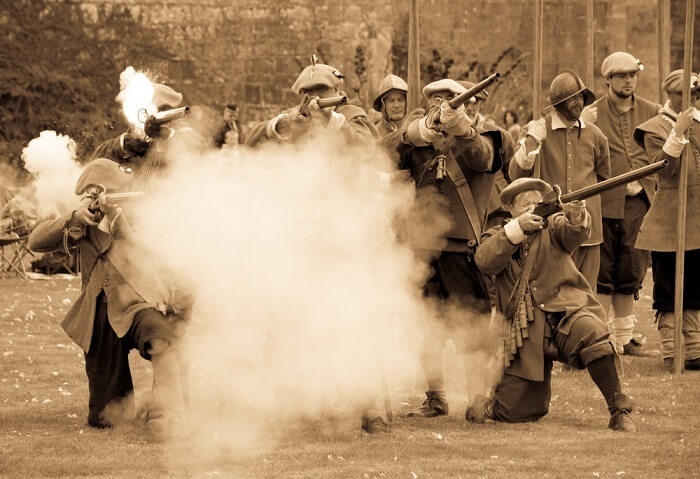Many actors and actresses may face challenges with roles that necessitates an accent other than their own. One such accent is the Scottish accent. Just walking into an audition and thinking you can wing it without practice is not a good idea. Many languages have sounds and nuances that you will be unfamiliar with. Without practice you will likely not sound authentic.
When your accent sounds fake, directors and others listening to your lines will pay to much attention on the accent. So they may not even notice how well you perform. Plus, you, yourself will be so focused on trying to sound convincing that your performance itself may suffer. So how do professional actors learn to speak in a convincing accent before a role or audition? This article will help give you tips on how to successfully learn a Scottish accent so that you can gain an edge for your tryout.

9 Tips on Getting the Scottish Accent Right
1. Research
Most countries do not have a general accent. In fact, the accent will vary depending on which region your character is from. In order to succeed and really fit into your role, you will need to research to find out exactly where your character is from. Then when you define the correct region, you can really begin to look into the proper accent.
More than likely you will need to use an accent from the Lowlands or Midlands. These are the typical accents you hear in films. However, never assume, it is better to find out for sure. After all, you do not want to spend an exorbitant amount of time learning one dialect only to find out later you learned the wrong one.
2. Learn Oral Posture
Oral posture refers to the placement of the tongue, jaw, teeth, and even vocal cords during speech. Scottish accents tend to have a very guttural quality. To achieve this, your tongue should sit far back in your mouth and be pulled further during actual speech.
Doing this type of position may cause you to inadvertently tighten up your lips and jaw. This is normal because you are not used to it. However, your jaw and lips should remain free and relaxed.
3. Learn the Lingo
Become familiar with the regional slang. Learning it will help you sound more authentic. You may master the Scottish accent to the point you can fool a Scott himself. But your ruse will be figured out pretty quickly if you only sound Scottish but do not speak like one.
For example, you may be used to simply saying hello to greet someone. It is a natural greeting because that is what you learned growing up. Thus, it may even be something you do not think about because it seems like it should be universal among English speakers regardless of their accent. However, some Scottish greet each other, not with a hello, but with an awright ya. You can see how you could give yourself away right from the first sentence you utter.
4. Learn the Minor Differences
Scots are the only English speaking people that use a rolled R regularly throughout their speech. This is especially true when the R goes after D, G or T. Watch your vowels when employing a Scottish accent. Scottish speakers shorten their vowel sounds making them use fewer of them.
For example, the word caught loses the longer au sound. So it is replaced with a short o making it sound like cot. The letter I loses its short sound and tends to only be spoken with the long I sound found in words like light. Lose the harsh G sound at the ends of words. Then watch for words that are replaced with others, such as, not with nee.

5. Curl up with Some Popcorn
One of the best ways to learn any accent, even a Scottish accent, is to listen to others speak it. Ideally, you should listen to un-watered down native speakers. They will give you the best examples. Find Webinars, television reports, and interviews that feature a speaker from the region you are learning.
Listen to their pronunciation. Take note of repetitive phrases or words, and watch how their mouths shape sounds. You can even watch shows or movies that feature actors with real or convincing Scottish accents. Listen to poor accents and notice what they are doing incorrectly and what it is that makes them sound less than authentic.
6. Practice
While watching a film or listening to a recording, try to repeat sentences back. Repetition will help you work out your oral position and strengthen your muscles. This way they will be comfortable with the new positioning. Putting in some practice can help keep your voice from getting tired. This happens especially with such a harsh Scottish accent. The last thing you want is to develop a sore throat or lose your voice all together. Imagine all of these happening before an audition.
You can also pick up a book based in a Scottish setting. Read it aloud to yourself or a willing partner. Sometimes what you hear is not the same as what others hear or what you are conveying. This is because you are focusing on keeping the accent accurate. Try to you record yourself and play it back to hear what others hear. Like this you can get an outside view of how you sound. From there you can pick out vowel or consonant sounds that you need to work on or inflections that are incorrect.
7. Take It on the Town
After you feel you have gotten in some good practice, a good next step is to wear your accent. Go to a restaurant you do not usually visit. There, use your new Scottish accent on the unsuspecting wait staff. Watch for facial cues that tell you how convincing or terrible your conveyance of the accent is. If you sound authentic, the waiter may even ask where you are from.
Then it is your decision to let them in on the ploy or not. If you do confess your fakery, you can get some really good, honest constructive criticism. If you continue with your accent, you at least get more practice, and the confidence of knowing you are sounding more genuine.
8. Really Get to Know Your Character
Remember you are learning an accent for your character, not for a region. When you learn what makes your character who they are, you can really use the accent. You will also notice that you do this to convey them rather than using it to represent a generality. Think about aspects like you character’s social class, their age, and their education. All of these things help create distinctions within their speech.
For example, if your character was raised rurally, they will likely reflect different speech patterns than if they were raised within the city. Or maybe your character was raised upper class. Then they will reflect that and may stay away from typical slang found in the streets.
9. Find Some Help
There is no shame in finding an outside source to coach you while learning a Scottish accent. There are vocal coaches who have done all the research and studied each dialect and their differences. So right from the go, you save yourself some time searching for the correct type of accent. A coach will know what to look for and stress which will help make the process more efficient. They will look for areas where you are likely to trip. They might even give you exercises to help you get better.
Working with a vocal coach is by far better than getting general critiques from friends and family. This is because they really do not know much more than you as to what you should sound like. Thus, a critique from a vocal coach will be more constructive. The coach will also make your practice sessions more fruitful. They can also give you tips on how to fix your mistakes, not just tell you that you are making them.

Wrapping It Up
Learning a Scottish accent, or any accent for that matter, can be intimidating. Especially when you are busy trying to learn your lines. When you go to your audition the last thing you want to do is look fake. If you don’t feel comfortable with your level of experience with a new accent you can put too much focus on keeping the accent in line. This may cause your actual acting to suffer. Take the time to research and get plenty of practice in so that you can sound as authentic as possible and build your comfort with the new accent. When cost is not an issue, make use of a vocal coach. The coach who can really hone in on your ability and streamline your success.
What tips would you like to add for actors trying to learn a new accent for a part? Do you have industry experiences to share? Feel free to leave any useful comments. They may help other actors and actresses achieve their goals.
Images from depositphotos.com.